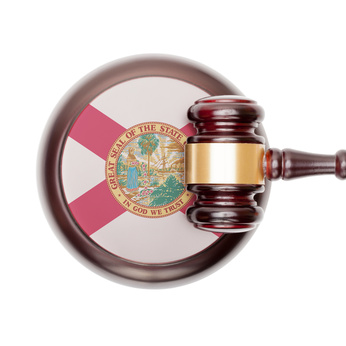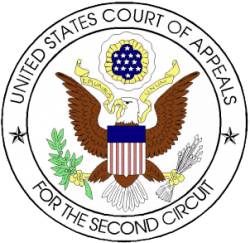The U.S. Court of Appeals for the Second Circuit recently affirmed a district court’s denial of a borrower’s post-verdict motions following the trial of federal Truth in Lending Act and common law fraud allegations. In so ruling, the Second Circuit held that: (1) the trial court properly admitted “habit and routine practice” evidence, over the borrower’s objection that this evidence was actually inadmissible “propensity evidence;” and (2) the trial court properly admitted photocopies of various loan documents into evidence, over the borrower’s objections of lack of authentication and the “best evidence” rule. A copy of the opinion in Crawford v. Franklin…
Posts tagged as “Mortgage Law”
The District Court of Appeal of the State of Florida, Fourth District, recently reversed summary judgment of foreclosure in favor of a mortgagee, holding that the plaintiff mortgagee failed to satisfy its heightened burden of proving the absence of any genuine issue of material fact on the issue of standing applicable because the motion for summary judgment was filed before the defendant answered the complaint, and the plaintiff mortgagee was on notice at the time that the defendant was contesting standing. A copy of the opinion in Statewide Homeowners Solutions, LLC v. Nationstar Mortgage, LLC is available at: Link to Opinion. A homeowners…
The Third District Court of Appeal, State of Florida, recently reversed the dismissal of a mortgage foreclosure action based on the mortgagee’s failure to provide the name of the corporate representative who was to testify at trial, holding that dismissal was an overly harsh sanction given that no prejudice was shown. A copy of the opinion in Deutsche Bank Nat’l Trust Co. v. Perez, et al. is available at: Link to Opinion. In October 2009, the trustee of a mortgage-backed securities trust sued to foreclose a mortgage on real property in Miami-Dade County, Florida. In October 2014, the case was set for…
The Supreme Court of Ohio recently held that a mortgage defectively executed but properly recorded still provides constructive notice of its contents. A copy of the opinion in In re Messer is available at: Link to Opinion. The borrowers executed a promissory note and a mortgage. The notary acknowledgment on the mortgage was left blank. The mortgage was recorded with the notary section incomplete. The mortgage was later assigned. The borrowers later initiated a Chapter 13 bankruptcy asking to avoid the mortgage as defectively executed under Ohio Rev. Code § 5301.01. The U.S. Bankruptcy Court for the Southern District of Ohio…
The U.S. Court of Appeals for the Eleventh Circuit recently upheld the dismissal of federal Truth in Lending Act (TILA) allegations that sought to hold the assignee of a mortgage loan liable for the mortgage loan servicer’s supposed failure to comply with the borrower’s written request for a payoff statement. In so ruling, the Court held that TILA creates a cause of action against an assignee where violation is “apparent on the face of the disclosure statement provided in connection with [a mortgage loan] transaction pursuant to this subchapter,” and that an alleged failure to provide a payoff statement is…
The U.S. Court of Appeals for the Ninth Circuit recently affirmed the dismissal of a federal False Claims Act (FCA), 31 U.S.C. §§3729-3733, lawsuit brought by private citizen plaintiffs against various mortgage lenders and servicers for supposedly making false certifications regarding loans sold to Fannie Mae and Freddie Mac. In so ruling, the Court held that Fannie Mae and Freddie Mac were not federal instrumentalities for purposes of the FCA, 31 U.S.C. § 3729(b)(2)(A)(i). A copy of the opinion in U.S. ex rel. Adams et al. v. Aurora Loan Services Inc. et al. is available at: Link to Opinion. The plaintiff…
The District Court of Appeal of the State of Florida, Fourth District, recently affirmed a final judgment of foreclosure in plaintiff mortgagee’s favor, holding that the plaintiff mortgagee was not required to send a second notice of default after it voluntarily dismissed its first foreclosure action before filing the second foreclosure action. A copy of the opinion in Michael E. Sill a/k/a Michael Sill v. JPMorgan Chase Bank, National Association is available at: Link to Opinion. In April 2007, the borrower signed a promissory note and mortgage securing the loan, but defaulted on July 1, 2009. Pursuant to paragraph 22 of the mortgage, the mortgagee sent…
The U.S. Court of Appeals for the Ninth Circuit recently held that, under California law, a two-year delay in failing to investigate the facts entitling a party to rescind a foreclosure sale transaction barred that equitable remedy, even though there was a genuine issue of material fact as to whether the plaintiff foreclosure buyer could have discovered material defects before the foreclosure sale. A copy of the opinion in DM Residential Fund II v. First Tennessee Bank is available at: Link to Opinion. A mortgagee (“lender”) initiated a non-judicial foreclosure of residential real estate in California, and sold that property at a foreclosure sale to…
The District Court of Appeal of the State of Florida, Fourth District, recently affirmed the dismissal of a mortgage foreclosure action because the mortgagee failed to present competent, substantial evidence that it had standing to foreclose, due to lack of conformity between the name of the plaintiff mortgagee and the names in the transactional documentation by which the plaintiff mortgagee claimed an interest in the note at issue. A copy of the opinion in Bank of New York Mellon Trust Company, N.A. v. Dennis M. Conley, et al. is available at: Link to Opinion. A mortgagee filed a foreclosure action. The promissory note contained…
The District Court of Appeal of Florida, Second District, recently reversed a trial court’s order vacating a voluntary dismissal based on mistaken advice from counsel regarding the statute of limitations, holding that the voluntary dismissal was the result of a deliberate judgment by counsel, and not the type of non-judgmental, clerical mistake that Florida law recognizes as a basis to undo a voluntary dismissal. A copy of the opinion in Cottrell v. Taylor, Bean & Whitaker Mortgage Corp. is available at: Link to Opinion. In March 2013, borrowers created a land trust, naming their attorney as trustee. They then transferred to the…
The U.S. Court of Appeals for the Second Circuit recently held that a debtor in bankruptcy can pursue claims under the federal Fair Debt Collection Practices Act in district court for trying to collect a discharged debt, reversing a judgment dismissing the FDCPA claims and requiring the plaintiff seek relief in bankruptcy court. A copy of the opinion in Garfield v. Ocwen Loan Servicing, LLC is available at: Link to Opinion. The debtor defaulted on her mortgage loan and filed for Chapter 13 bankruptcy, agreeing in her reorganization plan to pay the arrearage on her mortgage in monthly payments. The debtor received…
The U.S. Court of Appeals for the Sixth Circuit recently rejected a borrower’s “robo-signing” challenge to his foreclosure. In so ruling, the Court also held that a Michigan state court’s issuance of a preliminary injunction against a mortgagee in a foreclosure action did not bar subsequent removal and entry of summary judgment in favor of the mortgagee by a federal district court. A copy of the opinion in Burniac v. Wells Fargo Bank, NA is available at: Link to Opinion. The borrower obtained a mortgage loan, and the mortgage was later assigned. The new mortgagee continued to send the borrower his monthly…












